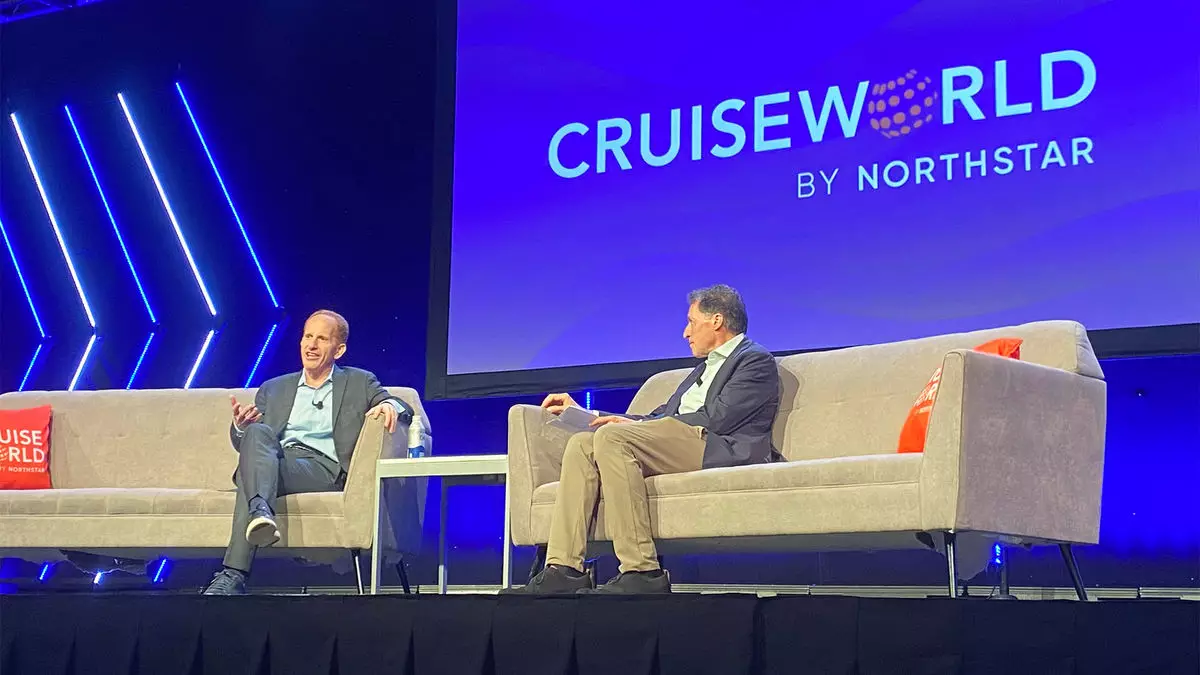In an era where customer experience dictates brand loyalty, Norwegian Cruise Line Holdings (NCLH) has made a momentous stride in re-evaluating its operational philosophy by introducing the concept of ROEx, or return on experience. This term signals a pivot away from traditional financial metrics, such as return on investment (ROI), towards a more nuanced understanding of guest satisfaction and experience value. Through this innovative framework, NCLH aims to harmonize operational efficiency with meaningful customer interactions, shedding light on what truly resonates with their clientele.
During a recent discussion at CruiseWorld, NCLH CEO Harry Sommer elaborated on how the company’s direction has been informed by contrasting management styles of his predecessors, Kevin Sheehan and Frank Del Rio. Sheehan, who primarily approached the business with a financial lens, emphasized a ROI-driven strategy that favored measurable gains. In stark contrast, Del Rio emphasized the importance of creating memorable experiences; however, this passion sometimes led to extravagant features that didn’t necessarily align with customer desires. Sommer’s reflection on these leadership styles underscores the complex interplay between managerial vision and consumer needs in an industry built around experiences.
A poignant example Sommer provided during his discourse was the decorative sculpture garden featured on the Norwegian Prima, which debuted in 2022. While the artwork may have captivated some, it ultimately failed to resonate with the majority of Norwegian Cruise Line’s guests. This realization has propelled NCLH to adopt a more customer-centric approach, highlighting the difference between artistic expression and consumer appreciation. By analyzing customer feedback and satisfaction data, NCLH is now poised to curate experiences that genuinely reflect guest preferences rather than solely indulging artistic ambitions.
One of the keys to NCLH’s new strategy under Sommer’s leadership lies in the utilization of data analytics to inform decision-making processes. During his initial days as CEO, Sommer made an unconventional request to the head of hotel operations for an inventory of meal preferences among guests—an inquiry previously unheard of. This approach emphasizes the fundamental shift towards a data-driven culture, where customer preferences and experiences are paramount. By leveraging this information, the cruise line endeavors to fine-tune its offerings, ensuring that both culinary and entertainment experiences are aligned with guest expectations.
As NCLH embarks on its journey to implement ROEx, the cruise industry may very well be on the brink of transformation. By prioritizing guest experience over traditional financial metrics, NCLH not only sets a precedent for its competitors but also redefines success in a world where customer preferences are king. The emerging emphasis on tailored experiences may usher in a new age in the cruise sector—one that promises not just trips, but memorable journeys crafted around the desires of each passenger. This innovative approach could ultimately help secure NCLH’s position as a leader in the cruise industry amidst a constantly evolving consumer landscape.


Leave a Reply